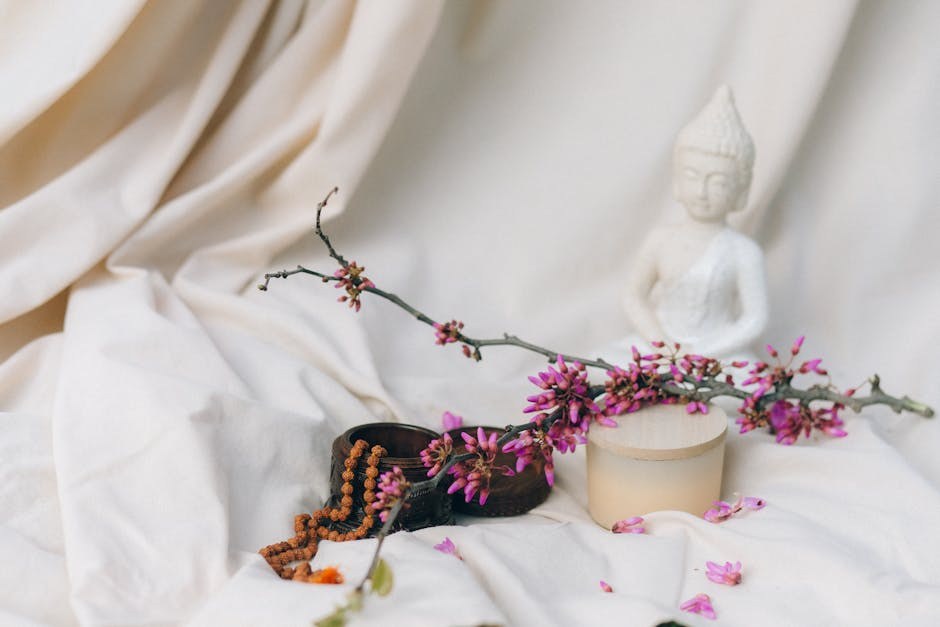Questioning your feelings is natural when a relationship is new – especially when every text, glance, or inside joke feels like electricity. If you’re wondering whether what you feel is the real thing or just a short-lived rush, you’re not alone. The signs of being in love can be subtle and loud at the same time, and learning to tell them apart from simple attraction helps you protect your heart and nurture something genuine.
What love tends to feel like
Love doesn’t arrive in a single form. It often starts as buoyant, fizzy joy – the kind that turns routine moments into highlight reels – and then matures into steadier warmth and devotion. Early on, being in love may have you floating; with time, it becomes an anchor you gladly carry. You can crave someone’s touch and still recognize that the deeper pull isn’t only physical. That steadiness is what separates being in love from a fleeting crush.
How love differs from lust
Lust focuses on bodies and chemistry; it’s a spark that flares hot and fast. Love, by contrast, adds care, curiosity, and commitment into the mix – the desire to see another person thrive, even when no one’s watching. You might experience both at once, but when the intensity of desire dips and your feelings remain strong, that enduring pull is a classic marker of being in love.

Clear signals that point toward real love
Below, you’ll find a set of unmistakable – and sometimes surprising – clues. You don’t need to recognize every one, but if several resonate, there’s a good chance you’re not just infatuated; you’re experiencing being in love in real time.
Everything glows a little brighter. Their quirks become captivating, the mundane seems cinematic, and ordinary days feel newly charged. That expansion of joy is a frequent companion to being in love, and it’s hard to miss once it starts.
Focus becomes slippery. Work tasks, errands, even your podcasts drift into the background because your mind keeps circling back – a steady loop of memories and what-ifs that often accompanies being in love.

Generosity comes easily. You find yourself putting their needs alongside – and sometimes before – your own. Thoughtfulness stops feeling like effort and starts feeling like a privilege, which is common when you’re being in love rather than chasing a thrill.
Your emotions ride a roller coaster. Highs feel higher, and small disappointments sting more than usual. That sensitivity – while sometimes exhausting – reflects how invested you are when you’re being in love.
Daydreams take the wheel. In line at the market or mid-conversation with friends, your mind wanders back to shared moments and imagined tomorrows. The mental rehearsal of a future together is a telltale rhythm of being in love.

Time refuses to cooperate. Hours vanish when you’re together, yet never seem like enough. This feeling – a gentle ache for more – is one of the sweetest markers of being in love.
Small habits become irresistible. The way they laugh, sip coffee, or adjust their sleeves can feel charming beyond reason. Seeing ordinary details as extraordinary is a quiet indicator of being in love.
A flicker of jealousy appears – and you notice it. You may not act on it, but you feel a protective tug when others have their attention. The key difference with being in love is that the feeling motivates honest communication rather than control.
Simple plans feel special. A walk around the block or a shared snack can feel like a highlight reel. The meaning you assign to tiny moments often swells when you’re being in love.
Places gain shared names. “Our corner table,” “our bakery,” “the bench where we cracked up” – geography turns into a scrapbook. This habit grows naturally out of being in love because you’re busy weaving a shared story.
Their voice captivates you. You could listen to them talk about nothing in particular and still feel absorbed. That trance-like focus is common with being in love.
You can’t stop bragging. You mention them to friends without realizing it – their kindness, their weird talents, their wins. Sharing pride this freely signals being in love rather than playing it cool.
Your bed feels emptier than usual. Mornings spark fantasies of them beside you, not just for intimacy but for warmth and banter. That craving for presence – not only touch – hints at being in love.
Your cheeks stage a protest. Smiling comes so easily that your face gets tired. If your default expression is grinning at the thought of them, you’re likely being in love.
You design small surprises. You pick up their favorite snack, save a meme that will crack them up, or map out a mini-adventure. Creating delight becomes a pastime – a classic thread in being in love.
Old heartbreak loses its grip. The ex who used to haunt your thoughts fades into background noise. The room they once occupied in your mind gets sublet – a spacious sign of being in love now.
Everyone else dims. Attractive strangers stop turning your head because one person feels singular. That effortless tunnel vision is typical when you’re being in love.
Hands find each other constantly. At crosswalks, at dinner, while watching a movie – you reach out without thinking. Affection becomes a reflex, which often happens when you’re being in love.
Your imagination skips ahead. You picture trips, holidays, and milestones – not as fantasies you must force, but as natural extensions of today. Gentle future-casting is part of being in love.
Love songs suddenly make sense. Lyrics that once felt corny now feel biographical. Music becomes a mirror – a playful side effect of being in love.
Your curiosity deepens. You want to understand their history, habits, and hopes – not to collect trivia, but to know them. That sustained interest is a living sign of being in love.
You’re eager to introduce them. Showing them to your inner circle feels exciting, not scary. Integrating them into your ecosystem often accompanies being in love.
You try on new perspectives. In debates and decisions, you consider their viewpoint without defensiveness. Flexible thinking like this tends to appear when you’re being in love.
Self-improvement kicks in. You sleep better, tidy more, plan ahead – not from pressure, but from inspiration. Wanting to be your best self is a healthy hallmark of being in love.
You feel safe being fully yourself. There’s no need to shrink or perform. Acceptance – messy hair and all – is one of the most nourishing parts of being in love.
The sparkle doesn’t fade when novelty does. After the first rush quiets, the warmth remains. This staying power separates being in love from the short arc of infatuation.
Attraction spreads beyond the physical. Their ideas, humor, and values light you up. Full-spectrum interest is a reliable sign of being in love.
Compromise feels fair, not forced. You meet in the middle because the relationship matters more than being right. That posture is common in being in love.
Games lose their appeal. You don’t withhold texts or stoke jealousy to gain leverage. Authenticity becomes the default – a mature dimension of being in love.
They feel one-of-a-kind. You could be in a crowded room and still feel like the world narrowed to two. That sense of singularity shows up often in being in love.
You spotlight their strengths. Flaws exist – they always do – but you notice what’s admirable first. Appreciative attention is a frequent companion to being in love.
Your calendar reshapes itself. You spend more time together and learn to rebalance friendships thoughtfully. This reallocation is typical of being in love, provided you maintain healthy boundaries.
You defend them, thoughtfully. When others criticize, you give context and extend grace – while still staying open to feedback. That blend of loyalty and realism reflects being in love, not blindness.
Empathy becomes second nature. Their moods echo in you. If they’re anxious, you soften; if they’re joyful, you glow. This emotional attunement is a hallmark of being in love.
Your tastes begin to overlap. You sample each other’s hobbies and adopt a few. You don’t disappear – you evolve. This gentle mirroring often blooms during being in love.
Details stick. Favorite flavors, pet peeves, childhood stories – you remember and use them to show care. That attentive memory is common when you’re being in love.
Their safety matters to you. You check in after late drives, bring soup when they’re sick, and worry in a healthy way. Protective care like this grows from being in love.
You miss them for more than touch. When they’re away, you crave conversation, laughter, and quiet company – not only intimacy. That broader longing is part of being in love.
Their opinion carries real weight. You want to be respected by them and you value their view of your character. This desire for esteem is deeply woven into being in love.
They can wound you – and you choose trust. Their criticism stings more than others’, yet you lean into repair. Vulnerability with resilience is a mature feature of being in love.
You make space for their family. You navigate quirks, traditions, and reunions with patience. Investing in their constellation is a practical expression of being in love.
Future family thoughts surface. You catch yourself picturing life milestones – from pets to parenting to shared homes. Imagining legacy together commonly arrives with being in love.
Your presence steadies each other. Sometimes a glance is enough to bring you back to center. That wordless reassurance is a gentle byproduct of being in love.
They’re your first call. Big promotion or bad day, they’re the person you want to tell. Turning toward each other first is a core rhythm of being in love.
Their wins feel like yours. You celebrate their success with genuine pride – no scoreboard, no envy. Shared joy like this signals being in love.
You’d brave storms for them. Protectiveness rises – not as dramatics, but as willingness to face hard things together. Choosing courage on their behalf is a powerful sign of being in love.
You’d trade comforts for their peace. If necessary, you would adjust plans, relocate, or release old routines to support the relationship. Prioritizing shared well-being over convenience is a grounded expression of being in love.
If you’re still unsure
Logic can weigh the evidence, but love is felt – in your chest, your routines, your choices. If several of these signs sound like your daily life, you’re likely not just passing through a crush; you’re navigating the rich, tender terrain of being in love. Move with honesty, protect your boundaries, and let your actions match your feelings – that’s where real connection grows.